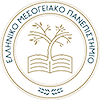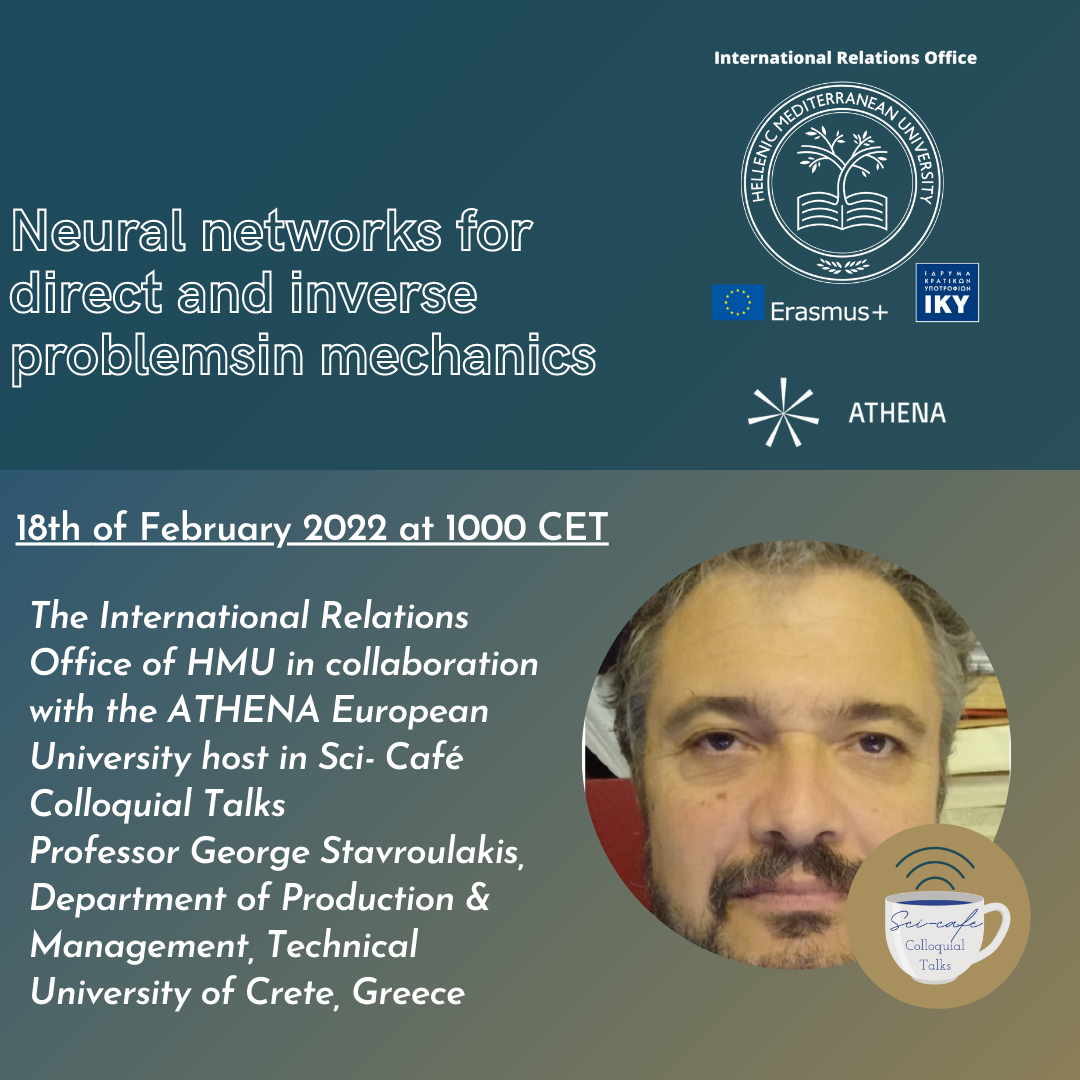The International Relations Office of the Hellenic Mediterranean University and the Athena European University is pleased to welcome Professor Georgios Stavroulakis from the Technical University of Crete to this Friday’s (18/2/2022) Sci-Cafe colloquial talks.
The talk will start at 10.00 CET (11.00 EET – Athens time) and to be connected please use the following link:
Meeting ID: 403 952 0498
Passcode: 477954
Georgios E. Stavroulakis is a professor at the Technical University
of Crete and Director of the Computational Mechanics and Optimization Laboratory (www.comeco.tuc.gr). He holds a Diploma and a Ph.D. from the Civil Engineering Department of The Aristotle University of Thessaloniki and a Habilitation degree from the Civil Engineering Department of the Technical University of Braunschweig. He is an Honorary Professor at the Jordan University of Science and Technology, Privatdozent at TU Braunschweig, and President of the Hellenic Society for Theoretical and Applied Mechanics (www.hstam.ntua.gr). His research is focused on the theoretical, computational study, applications, and software development in computational mechanics, nonsmooth mechanics, structural control and optimization, soft computing in mechanics, and structural analysis of monuments.
The talk’s title will be Neural networks for direct and inverse problems in mechanics.
A summary of the discussion follows:
Machine learning methods, neural networks, and big data have attracted the interest of researchers in mechanics. The exploitation of experimentally or numerically generated data is one example where artificial neural networks can be trained in order to provide a reduced-order metamodel. A multi-layer feed-forward network, trained by the back-propagation method can be used in structural analysis problems for several inputs to predict the expected outputs. Depending on the input-output data, this approach can be used to study direct or inverse problems. A review of various applications will be given at the first part of the talk, including the early work for the study of crack and damage identification and recent results on spring-back prediction in metal stamp processing and on data-driven multiscale analysis of composite structures.
The availability of recent software and hardware and the developments in deep learning allow us to study more complicated problems. Training can be based on data generated by the governing relations without the necessity of having input-output data. The so-called physics-informed neural networks are promising tools suitable for real-time predictions. Recent research work and open questions for further research will be presented.
The talk will demonstrate that combined computational mechanics and artificial intelligence tools can give solutions to challenging classical tasks and provide novel approaches for designing intelligent systems and reliable digital twins.
We hope that you will join us this Friday.

